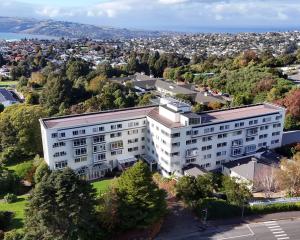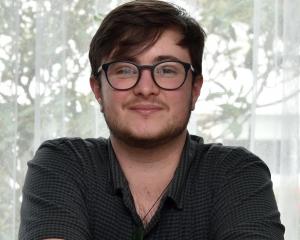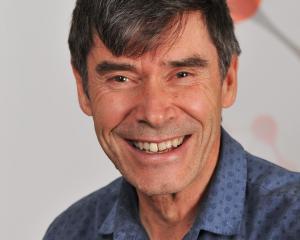
The 11-section subdivision is being developed by a syndicate led by Jason Morey, of Dunedin.
He said Karitane was one of the most special places he had worked.
"My family normally spend entire summers out there surfing, riding bikes and enjoying the outdoors."
When Mr Morey began working on the project he spoke to Karitane upoko (chief) of Kāti Huirapa Rūnaka ki Puketeraki David Ellison.
"He told me the history, so when it came time to name the street I figured he was the best person to do that.
"As a company we feel honoured that David was willing to take his time to do this for us," Mr Morey said.
Mr Ellison said he was the son of Thomas Rangiwahia Mutu Ellison, who was the first "Plunket baby", known as Baby Tommy.
"I thought it would be an honour for the selected name, not only for the Kati Huirapa Rūnaka ki Puketeraki, but especially for the various whānau directly involved in the evolution of Whānau Āwhina.
"The name is the Māori name used by Plunket since its restructuring in recent years, but I believe it was also used years ago."
Mr Ellison said the rūnaka was aware of the name and a letter of support had been written to the Dunedin City Council.
Two Māori midwives from his rūnaka — Mere Harper and Ria Tikini, both of Kai Tahu and Kati Huirapa descent - were highly respected midwives and healers who worked with their neighbour in Karitane, health reformer Dr Frederic Truby King, to care for the ill in their community.
The pair did the local groundwork and assisted in getting Whānau Āwhina started, Mr Ellison said.
"In the history books, those two midwives were classed as washerwomen, and the credit, including a medal, was given to the matron of the Seacliff Mental Hospital.
"The history was corrected two years ago, with an appropriate hui at Puketeraki marae," Mr Ellison said.
The midwives helped deliver "Baby Tommy", his father, in 1906, and brought in Dr Truby King when the baby began to become unwell following breastfeeding issues.
The baby was restored to health under the care and guidance of the three.
Shortly after, the society was developed in collaboration with the two midwives, utilising their expertise and many years of traditional health-care methods.
Later, Lady Victoria Plunket, wife of Governor-General Lord Plunket, threw her support behind the organisation, which then took her name, Mr Ellison said.
"It’s time that Karitane had a permanent reminder of being the birthplace of Whānau Āwhina Plunket, and to remember both Mere Harper and Ria Tikini, who were the real heroes."
Whānau Āwhina Plunket chief executive Amanda Malu said it was delighted that Karitane, the organisation’s birthplace, might have a street called Whānau Āwhina.
"It would be a wonderful way to honour Whānau Āwhina Plunket’s beginnings and our two founding wahine toa, Mere Harper and Ria Tikini."
The organisation had been on a journey to reclaim its whakapapa and bicultural origins.
While many people were familiar with Dr Truby King, it was only relatively recently that the stories of the two midwives had come to light.
The two Māori midwives were some of the first health professionals to work in the Karitane Home for Babies when it opened in Dunedin in 1907.
"It was Mere and Ria who helped deliver Tommy Mutu in 1906 - and later helped nurture him back to strength when breastfeeding issues were causing him to lose weight and become unwell. Tommy has forever since been known as the first Plunket baby.
"Mere and Ria’s stories were absent from our history for far too long. It’s been heartening to share their story and the truth of our organisation’s whakapapa, and this street name is a lovely part of that."
A Dunedin City Council spokesman confirmed the developer had applied for the road name Whānau Āwhina in Karitane, but the application was still being processed and the name would also need to be approved by the council’s infrastructure services committee.












